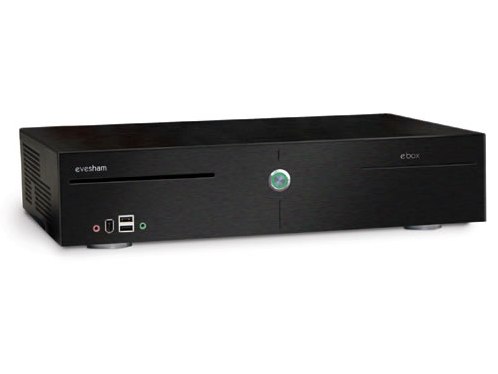Evesham e-box gets HD upgrades
HDMI output added to under-the-telly Media Center PC

Popular UK PC builder Evesham has announced a new HD video-enhanced variant of its award winning e-box Media Center PC .
Designed to look plausible in a living room setting, the jet-black e-box HD is a compact system in the usual set-top box idiom. Evesham styles the machine as "an all round entertainment system for the digital home".
Media Center with HDMI
Based on the AMD Live platform, Evesham says a typical e-box will sport an AMD Athlon 64 X2 5000 processor, integrated ATI Radeon X1250 graphics and a Sony DVD writer. Other highlights include a dual DVB-T TV tuner card, enabling you to watch one channel whilst recording another.
As for the new HD video support, this takes the form of an HDMI digital video port on the ATI graphics card, with full support for HDCP content encryption.
It's a welcome addition and makes connection to modern high-definition TV sets a cinch. But without the inclusion of either a brand new Blu-ray or HD DVD drive, or HDTV tuning capability, it's of debatable utility.
Likewise, the lowly ATI integrated graphics lacks full hardware decode support for the latest and most demanding video codecs. Whether the budget AMD dual-core processor has the guts to handle really high bit rate H.264 content, for instance, is a risk some buyers may not want to take.
Prices for the e-box vary according to configuration. The basic configuration starts at £699 but Evesham offers several customisation options to tweak the specification.
Sign up for breaking news, reviews, opinion, top tech deals, and more.
Tech.co.uk was the former name of TechRadar.com. Its staff were at the forefront of the digital publishing revolution, and spearheaded the move to bring consumer technology journalism to its natural home – online. Many of the current TechRadar staff started life a Tech.co.uk staff writer, covering everything from the emerging smartphone market to the evolving market of personal computers. Think of it as the building blocks of the TechRadar you love today.